
Allergy, Aspergillus fumigatus
Allergy, Aspergillus fumigatus
Aspergillus fumigatus is a common type of fungus found in the environment. It is mostly seen in the soil, water, dust, rotting or decaying vegetation (compost), some foods (spices), etc. It forms very small spores that float in the air. Most people who inhale these spores remain unaffected, but some show allergic reactions to them.
An allergy that develops in response to Aspergillus fumigatus is called Allergic Bronchopulmonary Aspergillosis (ABPA). This blood test specifically measures the antibody IgE levels and helps detect this allergy
Symptoms of ABPA
A person suffering from ABPA will exhibit some or all of these symptoms:

Frequent coughing
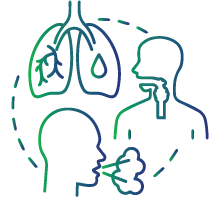
Coughing up brown mucus plugs

Coughing blood (hemoptysis)
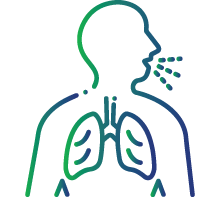
Wheezing

Shortness of breath

Chest pain or tightness

Recurrent fever

Fatigue
Who should get tested?
ABPA normally affects people who have one of the following conditions:

Asthma
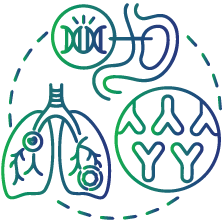
Cystic fibrosis
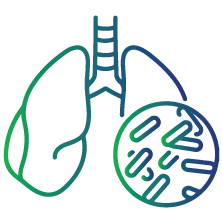
Tuberculosis
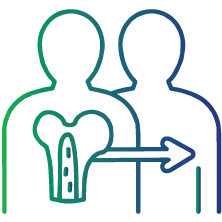
Weakened immune system due to organ or stem cell transplant

Diabetes
Test preparation
This test does not require any special preparation.
Interpretation of the Test Results
The relative amount of IgE antibody that is present in the body in response to Aspergillus fumigatus allergy is indicated in the following table:
|
Class |
IgE kU/L |
Interpretation |
|
0 |
<0.10 |
Negative |
|
0/1 |
0.10-0.34 |
Borderline/ Equivocal |
|
1 |
0.35-0.69 |
Equivocal |
|
2 |
0.70-3.49 |
Positive |
|
3 |
3.50-17.4 |
Positive |
|
4 |
17.5-49.9 |
Strongly positive |
|
5 |
50.0-99.9 |
Strongly positive |
|
6 |
> or =100 |
Strongly positive |
Deviations from normal levels may mean the following:
· If IgE antibodies are present in the serum, i.e., Class 1 or greater, there are increased chances of developing an allergy.
· Elevated total IgE levels indicate that you may have an allergy to Aspergillus fumigatus
FAQs
How is the aspergillus antigen skin test done?
In this test, aspergillus antigen is injected under the skin. After a lapse of 48 to 72 hours, the site is examined by a healthcare provider. If the site shows inflammation, it means the person has tested positive and has been exposed to the aspergillus mold. Thus, that person is at risk of developing Aspergillosis
How is the sample collected for IgE antibody testing for Aspergillus fumigatus allergy?
For blood sample collection, a small needle is inserted into a vein in your arm, and the required amount of blood is drawn. Usually, this procedure does not take more than 5 minutes
What is the turnaround time (TAT) for this allergy test?
The turnaround time for the test to detect allergies to Aspergillus fumigatus usually takes about 6 working days. However, it can sometimes take a bit longer for the results to be obtained
What are the risks associated with the test?
Since this test involves inserting a fine needle in your arm, there might be slight soreness or tenderness at the site of injection. On very rare occasions, the site might get infected
How can you avoid contact with Aspergillus fumigatus?
Try avoiding coming into close contact with soil or dust by not engaging in activities such as gardening and yard work. Even if you have to indulge in these activities, it is advisable to wear shoes, long pants, and long-sleeved outfits to avoid exposure to Aspergillus. Use hand gloves while handling soil, manure, or moss.

